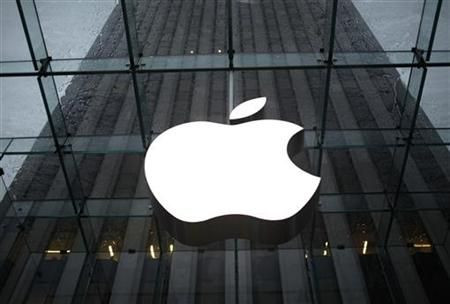Google-Motorola Deal Positive for Apple; iPhone Maker to Strike Back

Google Inc.'s $12.5 billion purchase of Motorola Mobility Holdings Inc. will have positive impact on Apple Inc., Barclays Capital said in a note. But Jefferies believes Apple is likely to strike back in patent war.
In RBC Capital Markets' view, rising intellectual property (IP) threats to Android (and its original equipment manufacturers) from Microsoft Corp. and Apple was the major driver of the acquisition.
Motorola Mobility holds about 17,000 granted patents and 7,500 pending patent applications worldwide, which cover 2G, 3G, 4G, H.264, MPEG-4, 802.11, OMA and NFC as well as strategic areas including audio codec technology, UI, location-based services, power management, wireless email, and other smartphone related applications and services.
We believe this deal validates Apple's business model -- the development of its own inventions, resulting in integrated software and hardware. In order to compete over the long term in the smartphone era it is clear that patents and inventions are going to play a bigger role, said Ben Reitzes, an analyst at Barclays Capital.
Apple's smartphone patents relate to multi-touch, object-oriented operating systems, and user interface -- so this may not necessarily mitigate some of the IP Wars currently underway (Apple was suing Motorola Mobility for patent infringement -- and vice-versa -- already so this unlikely to change).
However, Google's acquisition of more fundamental wireless patents may avoid deeper threats from Apple, Microsoft and also offer Google/Motorola Mobility leverage in cross-patent licensing negotiations, said Mike Abramsky, an analyst at RBC Capital Markets.
He said Google may in time need to assert some fundamental patent and/or trade lawsuits against Apple and Microsoft using the Motorola Mobility portfolio in order to rectify the balance.
In the longer term, this combination could offer more competition to Apple in Smartphones, depending if Google can leverage Motorola Mobility and the control over hardware/software together to further new innovations, Abramsky said.
He said Google/Motorola Mobility may reduce Android fragmentation and improve software/hardware integration, so Google/Motorola Mobility may become a better competitor to Apple at the high end of the market.
However product, market and organizational integration between Google/Motorola Mobility may be disruptive in the near term, and may offer Apple some interim competitive advantages, especially with iPhone 5 and iOS 5 due out in the Fall.
From a developer perspective, this may throw some Android developers a curve ball as they try to figure out how this all sorts out for them (regarding original equipment manufacturers versus Android/Motorola Mobility, platform roadmap, etc) and they may even focus efforts around iOS in the meantime.
Apple may de-emphasize some Google services on iPhone given Google is now a direct hardware competitor.
Apple to Strike Back
Meanwhile, Jefferies believes Apple is likely to strike back in patent war. It believes Google will use Motorola Mobility's patent portfolio as a weapon and not just as a defensive maneuver.
As a countermeasure, we expect Apple to closely examine the potential value of the remaining intellectual property portfolios which are Nokia Corp., BlackBerry maker Research In Motion Ltd. and InterDigital. We expect Apple to focus on wireless patents that are truly essential and part of the standards, said Peter Misek, an analyst at Jefferies.
Misek believes Apple's large cash position gives it significant flexibility to respond with its own acquisition.
We believe Apple's ability to pressure the Android ecosystem and Android original equipment manufacturer (OEM) device makers has significantly declined following Google's purchase of Motorola Mobility, said Misek.
© Copyright IBTimes 2024. All rights reserved.





















